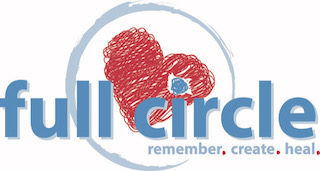By: Britt Cowart, LCSW
There are approximately 47 plus million Senior Citizens in the US (65 and older) and this population is doubling. The average age expectancy is 78+ years and rising. With a growing aging population, it’s typical and expected that Seniors are experiencing increased loss and associated grief. The pain of grief is not lessened by age.
In fact, Seniors experience grief just as deeply as anyone else and often lose many loved ones across their lifespan experiencing grief over and over again due to increased longevity.
While the death of a spouse may be the most significant loss a Senior may experience, losing friends, outliving children, and experiencing other family of origin deaths can be equally as challenging to recover and heal from. Additionally, because Seniors often live alone, they are at higher risk of isolation and depression while grieving a loss. Grief can also have an impact on Seniors’ immune systems creating increased risk for health issues, illnesses, and ailments after a loss. Nursing homes and senior centers can intensify grief symptoms as well due to potential isolation, loneliness and non-recognition of worsening grief, depression, or secondary losses.
Additionally, there are non-death related losses that can compound and sometimes complicate Seniors’ grief processes such as retirement, empty nest, loss of driving/freedom, loss of health, loss of stamina, and loss of finances. Also, Seniors can experience the loss of close relationships with family members due to their busy lives, not living in close proximity, and changes in living situations.



Grief is a normal part of loss, but it’s critical that we as loved ones, professionals, and caregivers, increase our knowledge of grief in the growing Senior population, the variables that impact it, and ways we can help the Seniors in our lives.
What Senior Grievers can do to take care of themselves:
- Eat routinely, exercise regularly, take medication as scheduled.
- Increase socialization and combat isolation by sharing a meal with friends, do activities to stay busy, talk with people and other widow/widowers, go to the market/coffee/movies with a friend or social group. Go to church, volunteer, get involved with events.
- Join a grief group for Seniors to increase support, community, and healthy coping.
- Explore Bereavement Counseling with a professional to address grief symptoms and enhance healing and functioning after a loss.
- Get support in navigating tasks you may be unfamiliar with due to the loss of a lifelong partner.
- Face difficult grief feelings and find creative ways to express them.
What others can do to support grieving Seniors:
- Listen to them.
- Enjoy a meal with them.
- Visit often and regularly especially later after the loss when others have stopped visiting.
- Help them with tasks, errands, appointments, chores ie. Grocery shopping, doctor’s appts., fixing meals.
- Plan and participate in a special activity with them.
- Introduce a new positive coping skill, activity to their life, routine.
- Spend time with them to assess their grief symptoms, signs of depression, healthy coping etc.
References: Census.gov and Seniorliving.org/statistics

